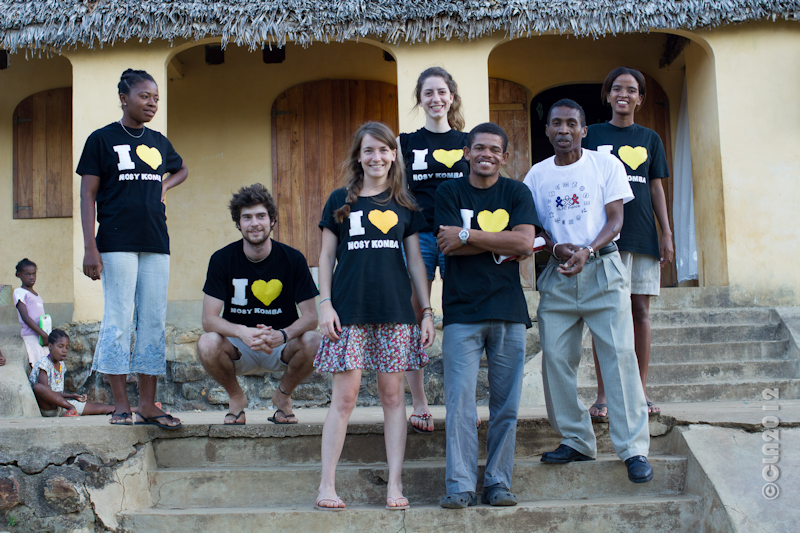Mark from West Texas writes about preparing for deploying the second 100 XOs in Honduras, in Siguatepeque. The grassroots project started last year with a school in Santa Rosita.
Category Archives: OLPC
Miguel Brechner sobre el impacto del Plan Ceibal
La República recently published an article on the history of Plan Ceibal and how it is seen and referenced by programs in other countries:
Nuestro paÃs es consultado constantemente por otros estados interesados en aplicar el programa de “una computadora por niño 
Uruguay tiene presencia mundial no solo por el fútbol. El Plan Ceibal hace que nuestro paÃs tenga una presencia importante en grandes eventos. “Hace algunas semanas, fui a un congreso con veinte mil personas en Estados Unidos, y el primer dÃa no dejaron de hablar de Uruguayâ€, explicó Miguel Brechner.
Read the whole piece (in Spanish).
On OLPC and the diversity educational environments
A reply to S. Varghese
One of the Millennium Development Goals of the United Nations is to offer a sound elementary education to all children of the world by the year 2015 and to increase their access to information and communication technologies. One Laptop Per Child has worked since 2006 on this urgent educational mission in collaboration with public and private organizations in some forty nations, mostly in developing countries.
The great diversity of educational environments – or the lack of them – is the principal challenge here, and needs careful programming based on local conditions and human resources. OLPC is founded on five principles: ownership, early ages, saturation, connectivity and free and open source collaboration. This is the result of decades of research and development in advanced centers of study, and the XO laptop and the Sugar platform are two remarkable products of this international collaborative work. Other products will come soon as OLPC evolves to give answers to the increasing demands of education.
The central question is how to scale up the OLPC program from a town to a province to a country, in order to satisfy the educational requirements of different student populations. The agenda is getting more complex with the expansion of the geographic area involved. The local authorities must establish a detailed agenda in several steps, to provide a sound educational program to different cohorts of students, continuous training of teachers, and distribution of laptops to all children and teachers. Also the implementation of servers and internet connectivity in schools and public places, the logistics of repair or substitution of the laptops, etc. This whole process is part of a dynamic “cultural evolution†that produces a great variety of results, some unpredictable and innovative.
Mobile libraries: a Victorian idea helping OLPC users share books
David Bainbridge and Ian Witten of the University of Waikato in New Zealand published a paper last year about using the Greenstone digital library toolkit to help offline XO users share libraries of books. From their abstract:
The idea draws upon mobile libraries (bookmobiles) for its inspiration, which first appeared in Victorian times. The implemented technique works by building on the mesh network that is instrumental to the XO-laptop approach. To use the technique, on each portable XO-laptop a version of Greenstone is installed, allowing the owner to develop and manage their own set of books. The version of Greenstone has been adapted to support a form of interoperability we have called Digital Library Talkback. On the mesh, when two XO-laptops “see” each other, the two users can search and browse the other user’s digital library; when they see a book they like, they can have it transferred to their library with a single click using the Digital Library Talkback mechanism.
Alas, you need to be an ACM member or pay $15 to read the full paper.
Claudia Urrea inspires educators to reflect on what’s worth learning
Over at Edutopia, Suzie Boss covered Claudia’s recent keynote at PBL World, the annual project-based learning conference. From her writeup:
When Claudia Urrea was growing up in Colombia, her family made a point of doing projects together. Whether they were focused on fun — “building the coolest kite” — or more practical household matters, projects taught her the value of learning by doing. “Projects move students from being told what to do to owning their learning,” says Urrea.. Instead of thinking about “what I learned today and might use someday,” Urrea says, “help them see that what they learn today they can use today.” And for many years to come.
The whole piece is worth a read, with nods to Papert, Scratch, and the OLPC mission. As is the rest of the PBL World coverage. Now if only they’d put the video of Claudia’s talk online!
Nosy Komba: Of children and XOs
The OLPC Nosy Komba team are continuing their work with children in Nosy Komba, Madagascar, for the 4th summer in a row. You can follow their recent work on the OLPC France blog.

